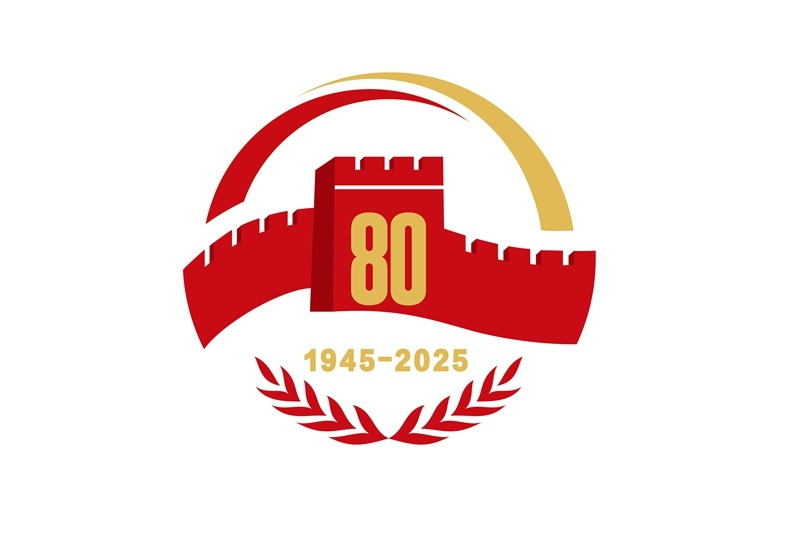Building bridges
The winner of a language competition is enhancing China-Belarus relations, writes Enoch Wong.

"Language barrier is one of the obstacles that hamper the development of cooperation ... and there is a shortage of specialists," said Belarusian President Alexander Lukashenko, who just completed his official state visit to China, in a comment to support the proposal to expand the study of the Chinese language in Belarus in 2017.
That was also the year when Ekaterina Kaligaeva became the Belarus State Chinese Bridge Competition champion, but her journey of learning Mandarin was no coincidence.
Foreign-language learning is not new in her multilingual family. Kaligaeva describes her parents who speak Russian, Spanish and German as role models with accomplished international careers in diplomacy, teaching and interpretation. Kaligaeva tells China Daily that she began learning Chinese almost a decade ago and is planning to take her level 9 HSK Chinese proficiency test this year, which is the highest level of the test and would qualify her to become an official translator.
Kaligaeva shares how this journey started with a "challenge" proposed by her father who told her that "learning another European language is easy because they are similar and it's in the 'family DNA', but mastering a language from the East would make him very proud".
Under the leadership of President Xi Jinping and Lukashenko, Chinese-Belarusian relations have developed comprehensively and cooperation in education has brought many results in recent years.
Kaligaeva and her twin sister are among the 40,000 Belarusian youth who have studied the Chinese language being taught in 35 schools across Belarus, as of 2022.
Kaligaeva recalls that registering for Chinese classes at their local Confucius Institute was easy, but only one of the sisters managed to keep up with the challenge throughout the years. For example, Kaligaeva's beginner class started with 15 students, but the year ended with only six learners in the classroom. Although the quality of instruction and instructors has improved since she started learning Chinese many years ago due to an increased popularity of the language among young people, she warns future learners that Chinese learning takes commitment and should not be taken lightly. She says the past years of learning Chinese have been rewarding and that it is a beautiful language, which has opened her up to a culture of 5,000 years.
At the Confucius Institute, besides learning the language, Kaligaeva also developed deep connections with Chinese calligraphy, xiangsheng (the traditional performing art of cross-talk in Chinese comedy), as well as traditional outfits.
Kaligaeva says she has six elegant qipao (cheongsam) which she often wears at events. "To many in the West, the dress may be a piece of stylish and visually aesthetic clothing, but to me, it has great untold stories which are difficult to be fully translated without losing some historical, cultural and philosophical connotations."
This is one of the driving factors that kept her motivated and persistent throughout the early years of tedious exercises in learning the language. In addition to falling in love with Chinese culture, she also felt it was important to find ways to practice the language beyond the classroom. Hence, it was a no-brainer for Kaligaeva who decided to pursue her undergraduate studies in China.
"Killing two birds with one stone "and "dreams come true" are how Kaligaeva describes her decision to study in China. Not only did this accelerate her command of the language, but studying journalism and communication science at Tsinghua University also helped her to fulfill her childhood dream of becoming a TV host. She says she is happy with the platform to tell her stories from the perspective of a Belarusian youth, introduce her country to the Chinese audience and express her viewpoint on different subjects.
She has taken part in many documentaries and has traveled across the country while filming vlogs to introduce China to her compatriots back home — presenting an authentic side of China in the West. She finds it difficult to choose her favorite moment among the many media-related appearances she has made, but she says her highlight has been hosting one of the celebratory events in both Chinese and Russian to mark the 30th anniversary of the establishment of China-Belarus diplomatic relations. The event was co-organized by the All-China Youth Federation and Belarusian Republican Youth Union in 2022, and was attended by the Belarusian Ambassador to China Yuri Senko, as well as officials from the Chinese Ministry of Foreign Affairs.
There were many memorable instances for Kaligaeva, including telling her China-Belarus story through a short film, exemplifying the bonds, hearing touching accounts of young Chinese entrepreneurs and scientists working in Belarus, facilitating youth from both countries to share significant achievements through the Belt and Road Initiatives, Confucius Institute and other educational exchange programs that form a foundation for the China-Belarus comprehensive strategic partnership, signed by the leaders of the two countries.
All this reminds her of the progress she has made since becoming the Belarus State Chinese Bridge Competition champion in 2017 and the responsibility in bridging her home country and China which she proudly calls her "second home".She says the bilateral cooperation is promising and sustainable because it is a "two-way bridge" that creates mutual benefits for both countries. In language education, she has discovered that Chinese institutions are opening in Grodno, Brest and some other cities in Belarus in addition to the capital Minsk. At the same time, Belarusian research centers are also being opened in various Chinese universities. She anticipates scientific, creative and technological potential in the future, which will reflect in the social and economic development of both countries. She says the joint efforts will continue to gain momentum in the next 30 years and beyond.
Kaligaeva says learning about China should be a lifetime's endeavor and should not be limited to the language.
As a result, in her final year at Tsinghua University, she made the decision to delve deeper into Chinese and global politics at the Yenching Academy of Peking University. She describes the interdisciplinary master's program in China studies as a window to China for students from all continents which form two thirds of the cohort every year. Kaligaeva says this program also helps international scholars to learn more about her home country. When she encounters individuals who are unfamiliar with Belarus, she chooses to embrace them as possibilities to spread awareness about her country. By doing this, stereotypes will be broken and more young people will be motivated to co-create a future filled with diversity.
Graduates are expected to integrate their leadership lessons and exchanges into their future careers in various sectors in order to become truly global citizens. As a Yenching Scholar, she is most fascinated by China's political leadership in the region and its ties to the Commonwealth of Independent States, particularly Belarus, as well as with the members of the Shanghai Cooperation Organization and countries involved in the Belt and Road Initiative.
She says five years ago, many young people in her country would not even be aware of the existence of the SCO and would pay little attention to international security and development, with Belarus focusing more on Russia and neighbors in the European Union. She says she has learned that more young people, in the midst of the ongoing global crises, now think more productive cooperation with the East, China in particular, holds the key to finding a solution for our shared future.
Belarus' admission as an official SCO member this year would mark an important commitment of the nation. Kaligaeva is excited about the prospect of youth involvement in the SCO, especially the potential of the higher education network "SCO University" to enhance cultural exchanges, advance academic research, and remove barriers to further promote equitable quality education. She has also taken part in a variety of events such as startup conferences and summer camps.
Kaligaeva says her Belarusian friends have become interested in regional initiatives like the SCO and BRI because "they believe they will actually gain tangible benefits and better employment opportunities".She says both countries produce scientists, engineers and technology workers, and that the China-Belarus comprehensive strategic partnership can bring talent to work together on common projects to boost the development of high-tech industry and business activities. She gives the example of the China-Belarus Great Stone Industrial Park, an infrastructure project along the BRI, to illustrate how bilateral cooperation will create new demands for jobs in high-tech manufacturing such as mechanical engineering, electronics, telecommunication, chemistry, biotechnology, pharmaceuticals, new materials, logistics, e-commerce and big data.
Looking ahead into the future, Kaligaeva says Belarusian youth pay close attention to the creation of a regional center for Sinology and a hub of China studies, as recently suggested by Lukashenko.
This would take Confucius Institute and Chinese-language learning to the next level and enable a more comprehensive academic understanding of China's past, present and future.
She says this could be a drawn-out process but expresses her interest in making a contribution to it by participating.
In the meantime, she plans to continue developing both her personal and professional networks with other scholars in order to improve her understanding of diplomacy and launch a career that will allow her to serve as a "bridge "between China and Belarus.
The writer is a student ambassador at the Global Communication Office, Tsinghua University.



Today's Top News
- Second round of recall votes targeting Kuomintang lawmakers fails
- Recall vote shows 'Taiwan independence' separatism doomed to fail
- China holds third rehearsal for event marking 80th anniversary of victory over Japanese aggression, fascism
- China activates emergency response as Typhoon Kajiki approaches
- Putin-Zelensky meeting not being planned, intense mutual attacks persist
- Ancient civilizations should adjust ties






























